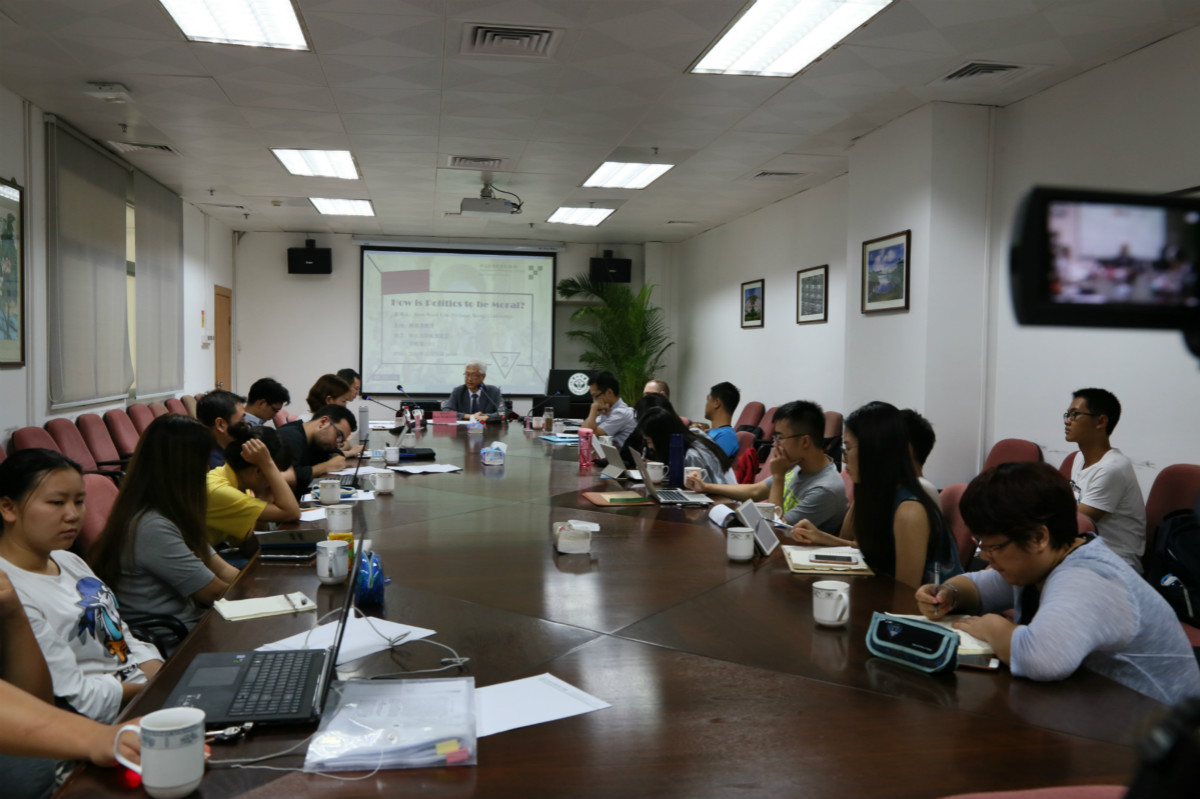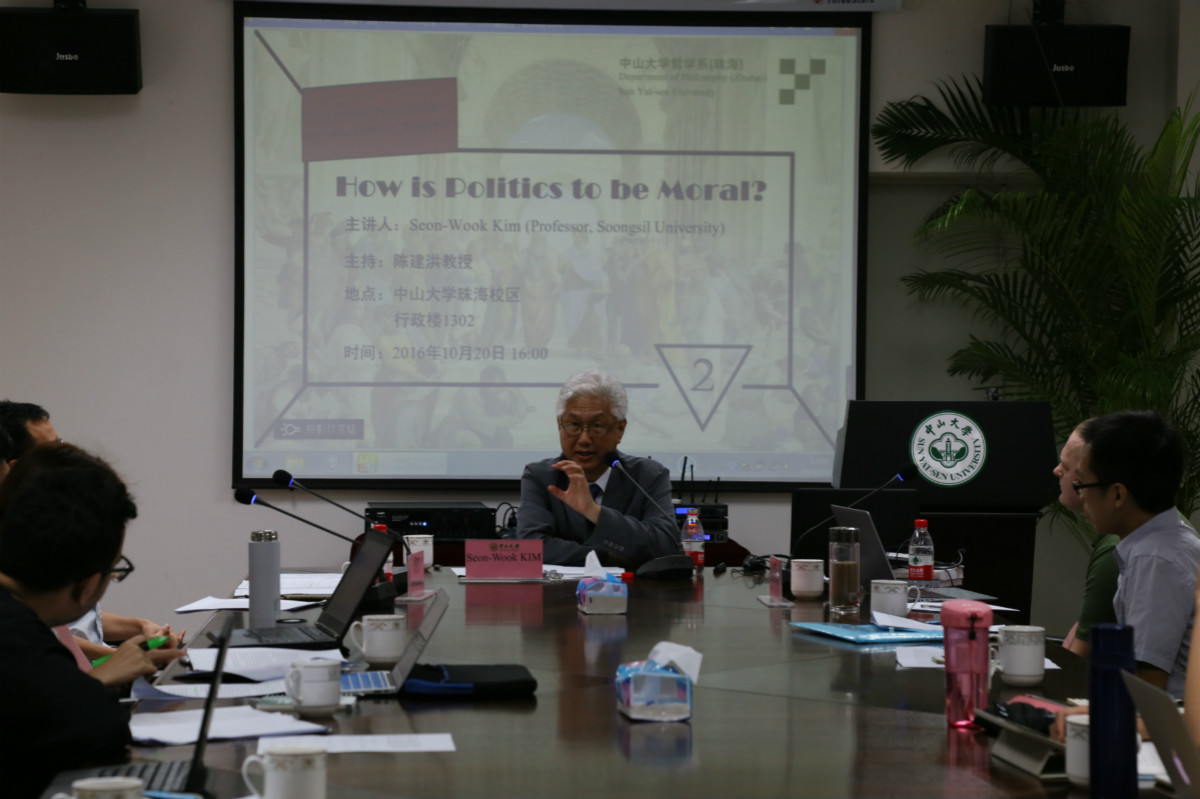Political Philosophy Workshop 系列第二讲:How is Politics to be Moral?
On 20th October, 2016, the Department of Philosophy (Zhuhai) , Sun Yat-sen University hosted Professor Seon-wook Kim of Soongsil University, South Korea, for the second Political Philosophy Workshop of the semester.
Professor Jianhong Chen served as moderator and introduced Professor Kim as one of the world’s leading scholars of Hannah Arendt. Professor Kim then presented a paper entitled ‘How is politics to be moral?’ which made two key claims: (1) that the validity of Machiavelli’s distinction between the moral and political realms renders moral philosophy unable to offer useful prescriptions for solving the problem of political corruption in South Korea; but (2) the problem could be solved by way of establishing an Arendtian ‘political space’.
Serving as respondent, Dr. Tim Beaumont raised several objections centered upon the potential tension between the Machiavellian and Arendtian premises in Professor Kim’s argument, and the possibility of formulating moral philosophies which are flexible enough to be of useful application in the political realm. After this exchange, Professor Kim proceeded to take questions from the audience. Professor Chen began by enquiring about Arendt’s distinction between the philosophies of Socrates and Plato, and then Dr. Luis Rodrigues asked whether the Machiavellian distinction between the moral and political realm would be valid if morality were construed in consequentialist terms. Dr. Zhida Luo followed with the suggestion that the growing distrust that South Korean citizens have of their politicians may have more to do with broader concerns about social injustice than with worries about the corruption of individual politicians. Finally, Mr. Runjie Ou, a graduate student from the Philosophy Department (Zhuhai), enquired whether an Arendtian ’political space’ presupposes a relatively small population, as in South Korea, or whether it would also be feasible in countries with much larger populations, such as China.
Professor Kim concluded the proceedings with his thoughts on the proper role of the scholar in society. He reminded the audience that philosophy can be written for an audience of citizens, as well as for an audience of scholars, and that the former is more likely to be effective at fostering a more moral political culture.
We thank Professor Kim for his kind attendance and hope to welcome him again before long.

Political Philosophy Workshop系列第二讲顺利召开
2016年10月20日下午四点,中山大学哲学系(珠海)Political Philosophy Workshop系列第二讲在中山大学珠海校区行政楼1302会议室顺利召开。
本次研讨会由陈建洪教授主持,韩国崇实大学Seon-Wook Kim教授主讲,题目为:How is Politics to be moral?
会议伊始,金教授介绍了一项调查,调查揭示了韩国大学生对政治家的不信任现象,金教授指出如果政治家以及政治能够更加道德的话这个问题会有很大改善。随后金教授介绍到政治领域与道德领域是完全割裂的,因而不太可能直接在政治领域中引入道德原则,但是构建一个看似道德的政治空间是完全可能的。金教授认为政治空间的构建应当基于六种原则,这种政治空间能够为社会提供一种看似道德的政治,因而能缓和对政治家的不信任问题。
金教授发言之后,我系研究员Tim Beaumont对其论文进行了总结,并提出自己的几点疑问。随后,参与研讨会的师生纷纷加入讨论,就金教授的论文以及政治空间的国家普适性进行讨论。
最后,陈建洪教授对本次研讨会做了小结,并代表与会师生对金教授引人沉思的展示表示感谢,会议圆满结束。



